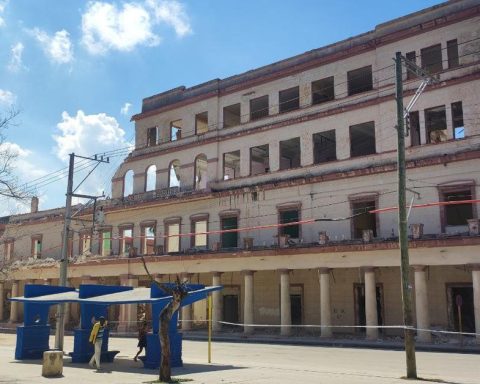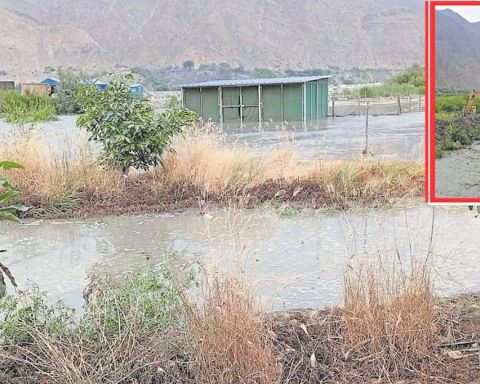AND
n a situation in which The US intensifies its discourse against Mexico, in which Mexican criminals are condemned in scandalous trials to reinforce that argument (regardless of the fact that the main one of those criminals for six years was rewarded, pampered and elevated by Washington, where apparently there are no bosses or corrupt people. ), at a time when world powers are raising armed and hateful barriers against migrants from poor countries, at this time it does not surprise me that the Nobel Prize in Economics is awarded to the authors of a pamphlet that reaffirms these positions and aims attribute the poverty of poor countries only to political decisions: Why countries failby Acemoglu and Robinson.
This book is about the enormous differences in income and living standards that separate the rich countries of the world, such as the US, Great Britain and Germany, from the poor, such as those in sub-Saharan Africa, Central America and South Asia.
says the first paragraph. Later they expand: The goal of our book is to explain global inequality
which they measure with the parameters of economic wealth: “most of Western Europe and the US… the settlements of British settlers in Canada, Australia and New Zealand… and Japan, Singapore and South Korea… Taiwan and later China” (p. 63).
Why are those countries rich and most others have failed
? The wealth of nations depends on the existence of political institutions that stimulate development, competition, etc. Why Egypt – the authors’ example in the preface – or North Korea, Sierra Leone or Zimbabwe are poor
and Britain and the United States became rich
? Easy: because the Yankees and the British “overthrew the elites that controlled power and created a society in which political rights were much more distributed (sic because of the slaves and migrants who made the United States, sic because of the openly undemocratic system of the British 19th century). ), in which governments had to be held accountable (sic for the military-industrial complex)… and in which the vast majority (sic) of the population could take advantage of economic opportunities (sic that does not want to quote The situation of the working class in Englandthe classic book from 1845, by communist
). We will show that, to understand why this inequality exists in the world, we have to delve into the past and study the historical dynamics of societies.”
Thus, they eliminate any reason linked to access to the key resources that allowed some countries to develop the capitalist and colonialist system from the 16th century onwards and to industrialize at the beginning of the 19th century, and they almost completely eliminate all mention of imperialism and colonialism. to reduce the reasons for poverty to internal political issues, to institutions. The story, they say. In addition to eliminating historical geography and economic history, his analysis of political history is crude and elemental: the repetition of truisms and commonplaces peppered with echaleganism neoliberal and, above all, blatant manipulation – even falsification – of history.
Stunning examples of this blatant manipulation of history are repeated: thus, at Congo agony
They dedicate five pages, of which only half a paragraph to the Belgian domain that reproduced the model of extractive institutions and political absolutism
previous. Of course, there is no mention of Patrice Lumumba or the anecdotal fact that the CIA had him killed. And they conclude that Congo “continues to be poor because its citizens still lack the economic institutions that create the basic incentives for a society to be prosperous. It is not the geographical location, nor the culture, nor…” imperialism, which in the end, are only four lines in that story.
When they try to compare the Mississippi basin with Peru, it occurs to them that agriculture could have developed in both regions… throwing overboard everything that archaeologists, biologists and other scientists who make history have discovered about the reasons for the origin of agriculture in alluvial rivers, such as the Tigris, the Nile, the Indus or the Yang-Tse-kiang, or lake basins such as those of Mesoamerica and Peru, and not around rivers that cross plains and plains of hard lands. These rivers, on the contrary, were a condition for the emergence and consolidation of capitalism: Rhine, Po, Loire, Danube, Thames, Seine… and later the rivers of Ukraine-Russia and the Mississippi, the largest agricultural basin in the world (a much smaller scale, is the case of Lerma, in Mexico), when the two-sided iron plow made it possible to open vast lands to cereal production. But, of course, geography and resources do not matter: only institutions.
Now, the example used as a starting point to illustrate and support their theories is Mexico, and there we can show the encyclopedic ignorance and interested manipulation of the history of these award-winning academics. With that topic, see you from today in 15 days.
















